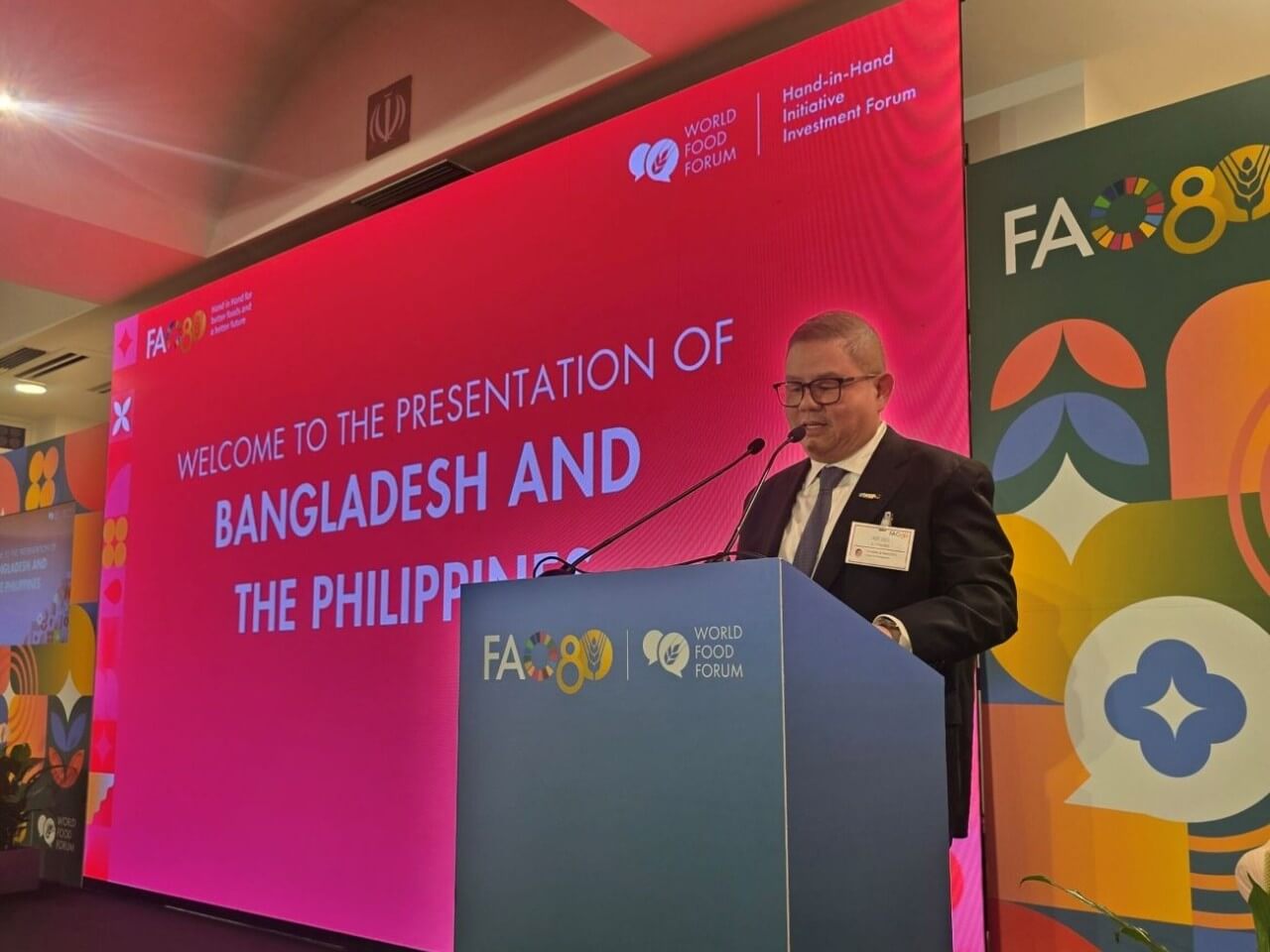

Marking its second consecutive year of the country’s participation, the Philippine delegation presented a dynamic portfolio of investment opportunities focused on innovation, food security, and climate resilience on Oct. 14, 2025.
Vision for a climate-smart agribusiness hub
According to a DA press statement, Agriculture Secretary Francisco P. Tiu Laurel Jr. opened the session by outlining the country’s vision to become a leading agribusiness hub in Asia, emphasizing inclusive growth, farmer empowerment, and climate-smart practices aligned with FAO’s Hand-in-Hand approach—an initiative promoting data-driven, integrated development strategies.
$108.88-M portfolio targeting key commodities
Assistant Secretary and DA spokesperson Arnel V. De Mesa, in a press statement, detailed the country’s $108.88-million agrifood investment portfolio targeting four key commodities—mango, abaca, seaweeds, and bamboo. The program aims to benefit over 35,000 rural stakeholders and projects a net present value (NPV) of $131.9 million with an Internal Rate of Return (IRR) of 34.39 percent.
The initiatives are also expected to sequester over 280,000 tons of carbon dioxide equivalent emissions, aligning with the country’s climate action goals.
Driving innovation across four key sectors
The seaweed farming project leverages the Philippines’ global dominance in carrageenan production, introducing the Multiple Raft Method to enhance yields and seed quality. With 73,467 hectares of untapped areas, it could boost farmer incomes by up to 60 percent.
The mango processing initiative seeks to modernize the value chain through investments in post-harvest treatment, cold storage, and value-added processing. Producing 763,298 metric tons in 2024, the sector is projected to achieve an IRR of 39.58 percent and an NPV of $83.4 million.
The abaca project addresses a global supply gap of 25,000 metric tons. As the world’s top abaca producer, supplying 85 percent of global demand, the Philippines aims to establish modern processing centers and rehabilitate farmland, supporting 300 farmers and increasing incomes by 50 percent.
Meanwhile, the bamboo initiative targets the $72.1-billion global market for sustainable materials, identifying 1.5 million hectares across five regions for potential cultivation, with an expected IRR of 33 percent.
Global partnerships for a sustainable future
Secretary Laurel emphasized that these investments align with the Philippine Development Plan 2023–2028 and Masaganang Bagong Pilipinas Agenda, highlighting the government’s push for mechanization, digitalization, and strong public-private partnerships to build a stable, investor-friendly environment.
During the WFF week, the delegation also held bilateral meetings with FAO Director-General Qu Dongyu, investors, and development partners to promote collaboration in agribusiness, climate-smart technology, and value chain innovation.
Showcasing Filipino agrifood innovation
At the “From Seeds to Foods” global exhibition, held on Oct. 10–14, the Philippines showcased mango, coconut, and seaweed-based products as examples of tropical agrifood innovation. These will continue to be displayed at the Philippine Embassy in Rome to boost global awareness and demand.
Strengthening FAO partnership
As one of the 34 founding members of the FAO since 1945, the Philippines reaffirmed its readiness to work with international partners to drive sustainable and inclusive agribusiness growth, echoing the WFF 2025 theme: “Hand in Hand for Better Foods and a Better Future.” —Ed: Corrie S. Narisma